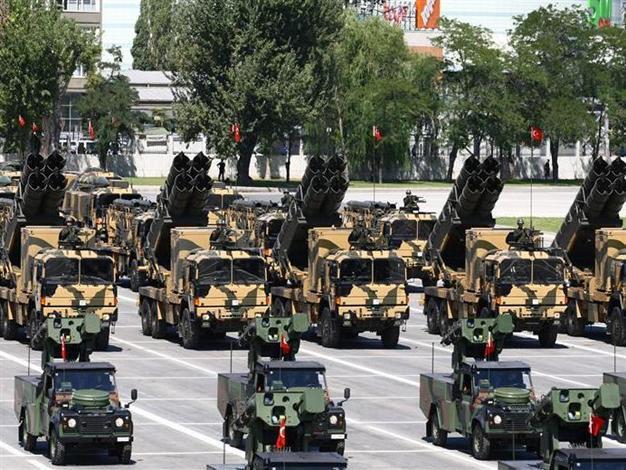Turkey lacks transparency in defense sector: Report
ISTANBUL

Transparency International UK says Turkey is a “high-risk” country on a new global index on defense establishment corruption. AA photo
Turkey’s defense sector lacks transparency and the discussion of arms deals and budgets is not subject to oversight, a recent report has revealed, noting also the absence of any whistleblower mechanism to counter graft.Turkey was categorized as a “high-risk” country on a new global index on defense establishment corruption conducted by the Berlin-based organization Transparency International UK.
In terms of political risk, there is no evidence that the country’s national defense policy is publicly available, and public debate on defense issues is restricted to merely foreign and domestic policy-related conflict, while discussion of arms deals and budgets is reportedly unobserved.
According to the index, more than two-thirds of countries have inadequate safeguards to prevent corruption in their defense sectors. Germany and Australia are the only countries out of 82 surveyed with strong anti-corruption mechanisms, according to what the watchdog says is the first index measuring how governments counter corruption in defense.
Fifty-seven of the countries, or nearly 70 percent, had poor controls against corruption, according to the survey, which rated governments by criteria such as the strength of parliamentary oversight of defense policy and the standards expected of defense firms.
The Turkish Court of Accounts’ jurisdiction is set to extend to encompass all military assets, bids and expenditure, the report said, adding that appointment procedures for intelligence service personnel were classified and that services were only subject to adequacy audits, which are not made public.
While relevant international anti-corruption instruments have been signed and ratified, the effectiveness of implementation is gauged to be uncertain, according to the report, which said controls over asset disposals were not transparent and that the percentage of defense and security expenditure dedicated to secret items in the budget was not released to the public.
Turkey’s defense and security institutions own numerous enterprises but are only subject to private legal regulations, and there is little transparency surrounding their operations and finances, the report said, but added that controls over personnel corruption risks were relatively strong, with effective measures in place to combat bribery and corruption among personnel.
Though there is evidence of strong laws against bribery for avoiding conscription and for preferential postings, and facilitation payments are illegal, there is no evidence of legislation to facilitate whistle-blowing or whistle-blower protection.
Furthermore, the recruitment of retired officers by agents or foreign manufacturers with offices in Turkey is recognized to be a tolerated, though illegal, practice. On the procurement front, while there is legislation in place, with bylaws regulating exempt items, the oversight mechanisms lack transparency. While tender boards are subject to regulations, the independence of their auditing is uncertain.
There is no evidence of audit, due diligence or competition regulation for offset contracts and no sign of regulations to control the use of agents and intermediaries, who are potentially influential in defense procurement decisions.
















